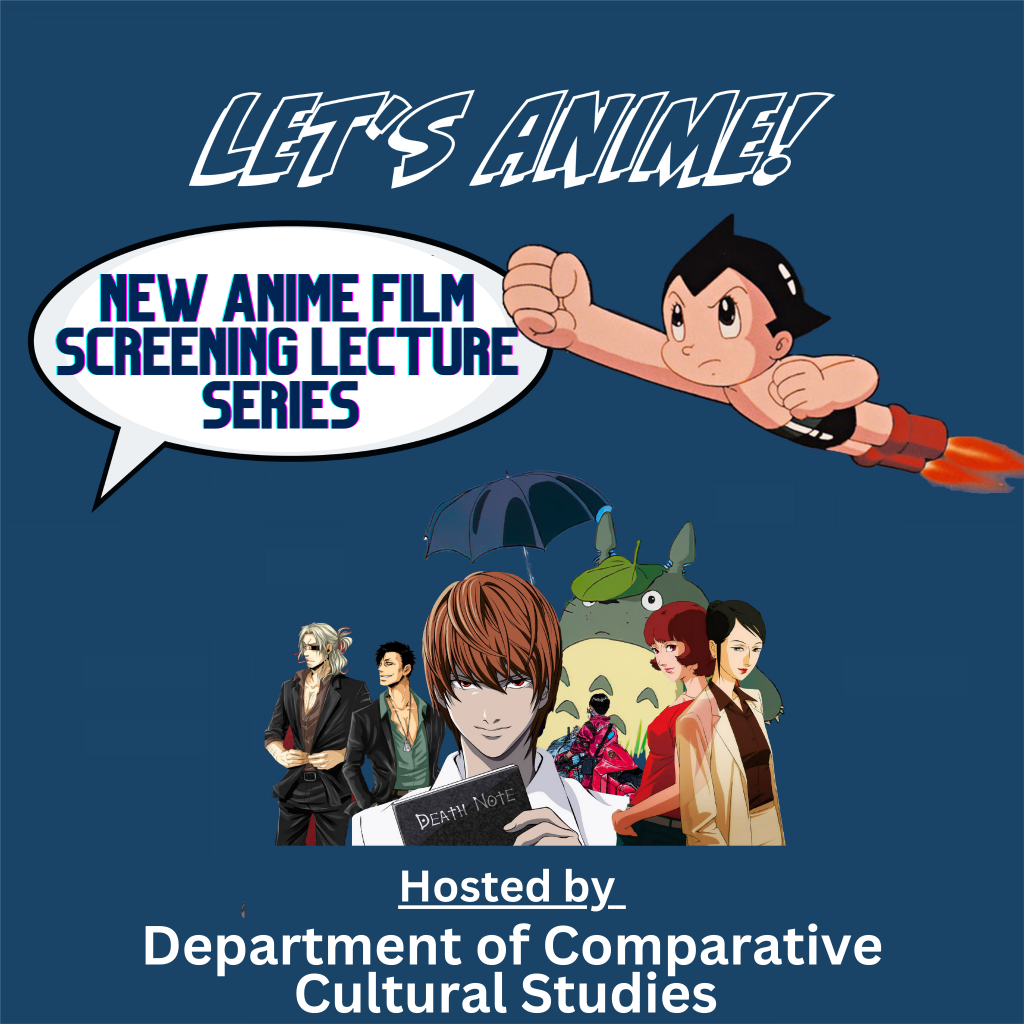The department of Comparative Cultural Studies at NAU is set to launch a new anime film screening lecture series with a free showing of Astro Boy by Osamu Tezuka on March 6. The inaugural event, Let’s Anime, will take place at 6:30 p.m. in Liberal Arts building, room 136. It is free and open to the public. Following the screening of Astro Boy, Dunja Jelesijevic, assistant professor in Asian Studies, will give a lecture on the origins and history of Japanese animation. The lecture will cover topics ranging from aesthetics to storytelling and will explore the sources and influences that drive modern anime productions.
“The series is envisaged as an introduction to the history of and influences on the development of animation in Japan leading to what eventually becomes what we know as anime today,” said Jelesijevic, organizer of the screening series. “I selected a number of early animation efforts to show during the lecture, and conclude it with, Astro Boy, what is today considered to be the first anime in contemporary sense.”
Jelesijevic plans for the series to have theme-driven events that are both entertaining and intellectually stimulating. She hopes that both established anime fans and anime novices alike will gain a new understanding of the depth and intricacies of anime narratives as well as its artistry. “I would also hope that audience would learn how much anime is rooted in Japanese culture, but also how it pulls from various sources of western tradition in literature, religion, philosophy and how it has the two intertwine in unique ways,” Jelesijevic added.
For Jelesijevic, the Let’s Anime series is an opportunity to showcase the department of Comparative Cultural Studies. “As a professor in charge of East Asian content on campus, I often use anime in my classes and those are hands down the most popular assignments that students get very excited about,” she said. Anime has become a significant part of youth culture globally and definitely in the U.S., which is why Jelesijevic and Gioia Woods, the CCS chair, felt that an anime-related event would be a good way to engage with the wider community. “Anime is known as Japanese art, but it has been proven over the past few decades that it has a wide appeal,” Jelesijevic said. “I hope to bring into focus for the novice audiences how anime probes some universal questions of humanity while it combines both traditionally Japanese, and non-Japanese narrative and aesthetic influences.”
Jelesijevic aims to bring into focus for the novice audiences how anime probes some universal questions of humanity while it combines both traditionally Japanese and non-Japanese narrative and aesthetic influences. Anime has become incredibly popular in modern America, and this event aims to trace that popularity from Astro Boy to Naruto.
As for future events, Jelesijevic plans to invite scholars and speakers to explore topics such as environmental issues in anime, food culture and nationhood, transhumanism and technology and more. While the series is still in the process of development, Jelesijevic hopes that it will become a tradition at NAU for a long time as well as a significant event in the map of anime studies.
Cynthia Gerber | NAU Communications
(928) 523-7341 | Cynthia.Gerber@nau.edu




